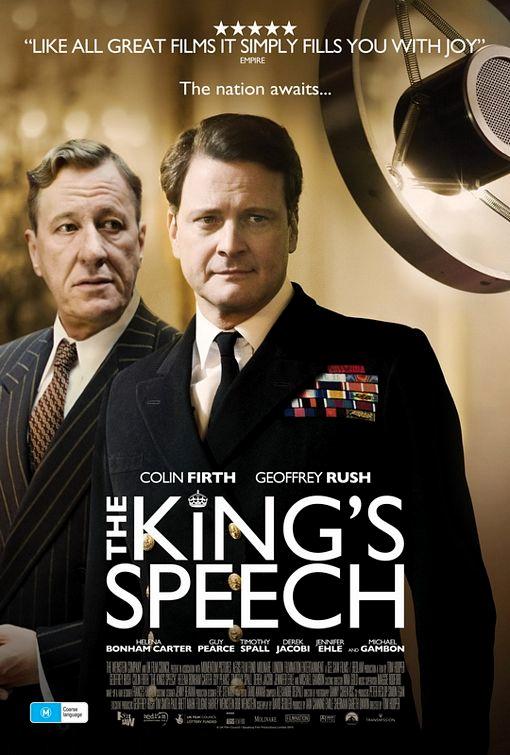
The King's Speech
R
Genre:
No Genre information.
In Theaters:
2010-09-06 00:00:00.0
Prince Albert, Duke of York (Colin Firth), the second son of King George V, stammers through his speech closing the 1925 British Empire Exhibition at Wembley Stadium. The Duke has given up hope of a cure, but his wife, Elizabeth, Duchess of York (Helena Bonham Carter), persuades him to see Lionel Logue (Geoffrey Rush), an Australian speech therapist in London. During their first session, Logue breaches royal etiquette and addresses his patient as "Bertie", a name used only within the Duke's family. Logue bets a shilling that Albert can read perfectly, and gives him Hamlet's "To be, or not to be" soliloquy to recite aloud while listening to loud music on headphones. Logue records his performance on a gramophone record; convinced he has stammered throughout, Albert leaves in a huff, declaring his condition "hopeless" and dismissing Logue. Logue offers him the recording as a keepsake.
After King George V (Michael Gambon) makes his 1934 Christmas address, he explains to his son the importance to the modern monarchy of broadcasting. He declares that "David" (Edward, Prince of Wales, played by Guy Pearce), Albert's older brother, will bring ruin to himself, the family, and the country when he accedes to the throne. King George demands that Albert train himself, starting with a reading of his father's speech. He makes an agonising attempt to do so.
Later, Albert plays Logue's recording and hears himself reciting Shakespeare well. He returns to Logue, but he and his wife insist that Logue stop delving into his private life and merely work on the physical aspects. Logue teaches his patient muscle relaxation and breath control techniques, but continues to gently probe at the psychological roots of the stutter. The Duke eventually reveals some of the pressures of his childhood: his strict father, the repression of his natural left-handedness, painful childhood metal splints to correct his knock-knees, his first nanny, who secretly mistreated him, and the early death of his younger brother, John. The two men become friends...
Director:
Tom Hooper
Screenplay:
David Seidler
Studio:
Others
DVD Release:
2011-04-19 00:00:00.0
Tagline:
It takes leadership to confront a nation's fear. It takes friendship to conquer your own.


























